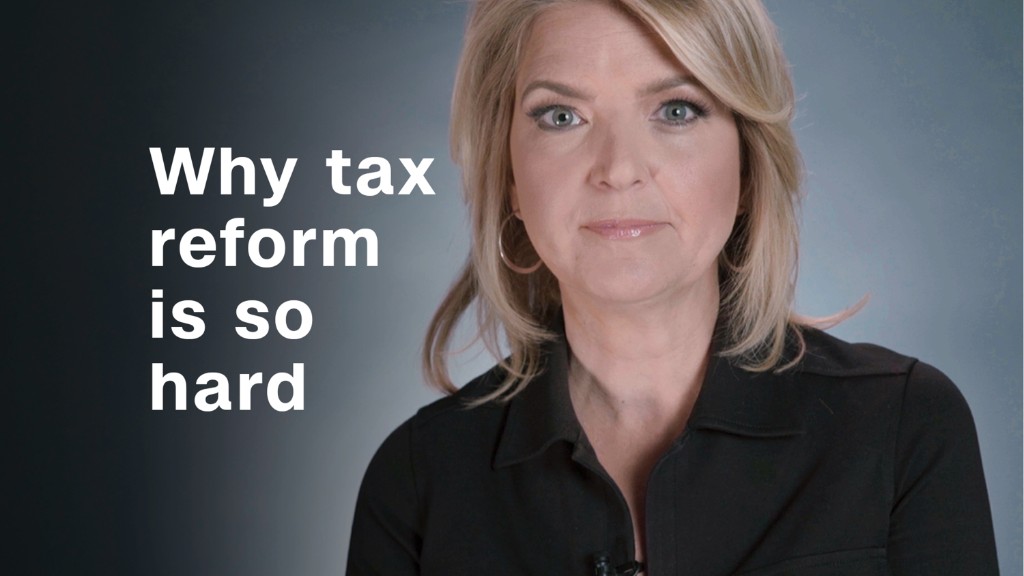
Figuring out who should get tax cuts and how big they should be is child's play compared to agreeing on how to pay for them.
The tax reform debate is in serious flux, still devoid of key details and marked by far more open questions than answered ones.
While Republicans agree on cutting tax rates, for instance, they're still undecided on whether those cuts should be paid for in full. But since a large swath of the GOP is staunchly against increasing deficits, they'll likely have to pay for at least some of them.
Here are some of the revenue raisers under consideration that may help them get there:
For individual tax cuts:
For tax reforms that affect individuals, there's been discussion of several possible offsets.
They include: further limiting the mortgage interest deduction; changing the tax treatment of 401(k) contributions, and repealing the state and local tax deduction.
Related: Trump says the U.S. is the highest taxed country in the world. It's not.
None of these options are particularly popular.
Capping the mortgage interest deduction could raise between $100 billion and $300 billion over a decade, according to the Tax Foundation.
The 401(k) change, meanwhile, is considered a budget gimmick. It would raise some money in the short-term by taxing employee contributions into workplace retirement plans, but it would actually lose revenue in the long run since people could withdraw their money from those accounts tax free in retirement.
A repeal of the state and local tax deduction is considered most likely since it would bring in the most money, raising north of $1 trillion over a decade by some estimates.
While the deduction has been on the books for more than 100 years, and lawmakers have tried (unsuccessfully) to repeal it before, some political observers and policy analysts say this time may be different.
For corporate tax cuts:
When it comes to paying for corporate tax cuts, there aren't as many options, especially if lawmakers opt to seriously slash today's 35% corporate rate.
"There are very few politically palatable revenue raisers or base broadeners available that can be used to help reduce the corporate tax rate to 20% or below," Tax Foundation president Scott Hodge told the Senate Finance Committee this week.
The biggest pay-for being considered is a repeal of the interest deductibility on corporate debt.
Currently, a company can deduct the interest it pays to its bondholders and on its bank loans. If the interest deduction were fully repealed, it could bring in about $1.4 trillion in the first decade and twice that in the second decade, said Kyle Pomerleau, federal projects director at the Tax Foundation.
Related: Trump is right. The corporate rate should be 15%. But it's not that simple.
Repealing the interest deduction fully or partially has been discussed as a way to pay for a proposal to allow for much more generous expensing provisions on capital investments -- whether it's buying new equipment or a new building.
But firms that are highly leveraged -- such as many in the real estate industry or foreign companies that do business in the United States and pay interest on their U.S. loans back to their parent companies abroad -- will push back hard against repealing interest deductibility, even if they might benefit from more generous expensing rules.
"By increasing the cost of capital, tax limitations on business debt could dramatically reduce real estate investment, reducing property values across the country, and discouraging entrepreneurship and responsible risk-taking," Jeffrey D. DeBoer, the head of the Real Estate Roundtable, told members of the Senate Finance Committee.


